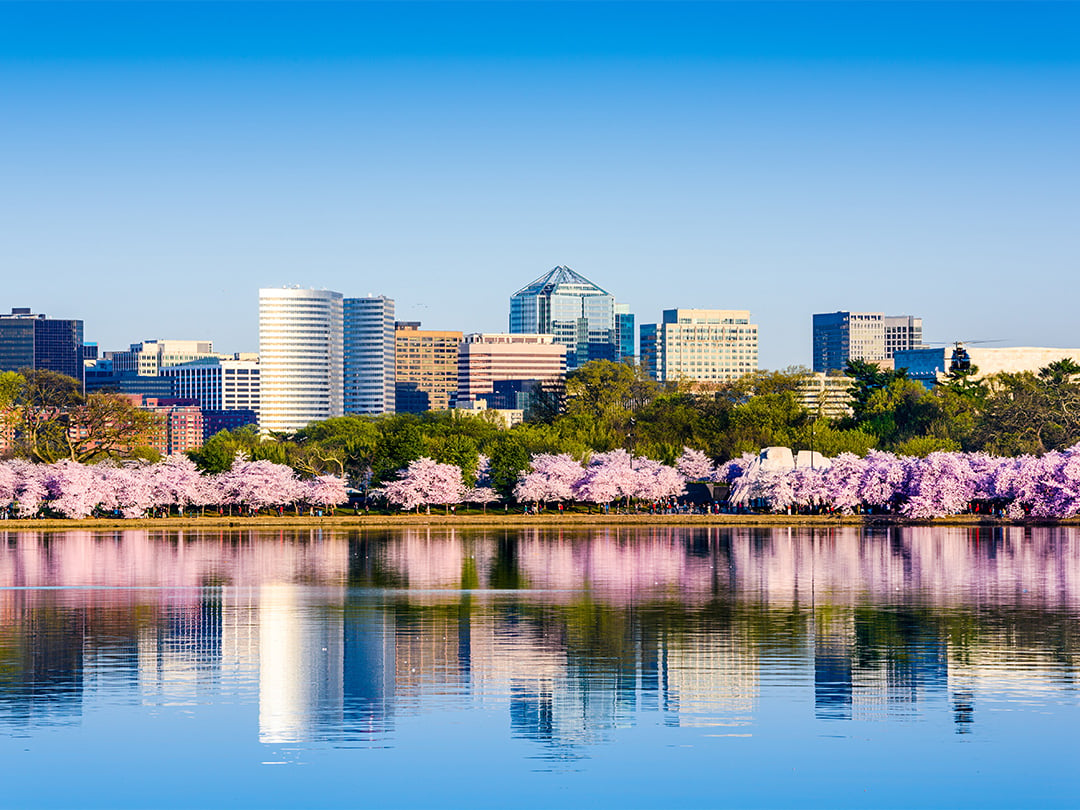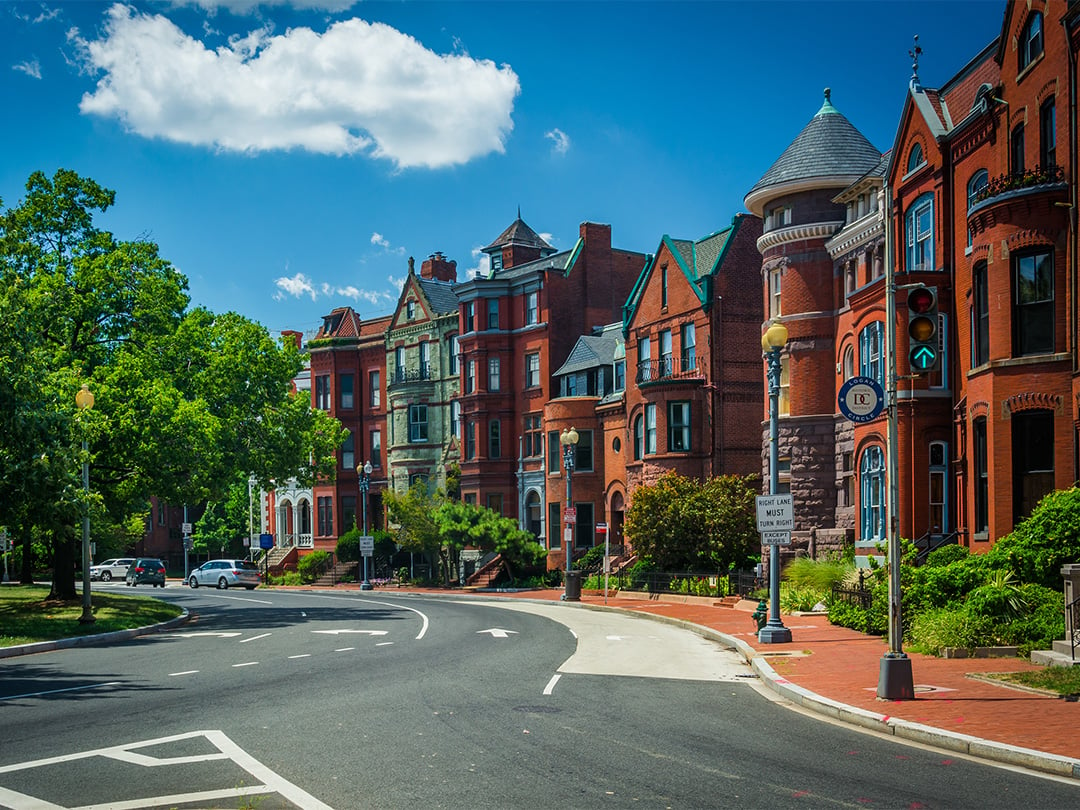Washington, D.C.

Moving to Washington, D.C.
Washington, D.C., the capital of the United States, is a bustling city with a dynamic population that swells during the work week due to commuters from nearby states. It is home to all three branches of the federal government, making government-related jobs a significant part of the local economy. The city's rich history and central role in national affairs make it a unique and vibrant place to live and work.
Washington, D.C. by the numbers
City population
Cost of living vs. national average
Median home price

Planning a Long-Distance Move?
Washington, D.C.: Top Attractions and Things to Do
Local Experiences
Local Experiences
Washington, DC, offers a rich tapestry of cultural and local experiences for residents and visitors alike. From vibrant neighborhoods and historical landmarks to unique tours and culinary adventures, there's something for everyone to enjoy. Here are some top recommendations to immerse yourself in the culture and charm of the nation's capital.
Sports and Recreation
Sport and Recreation
Washington, DC offers a diverse range of sports and recreation options for its residents, from state-of-the-art recreation centers to adult sports leagues and outdoor adventures. Whether you're looking for a place to play basketball, join a league, or explore the outdoors, there's something for everyone.
Adventures
Adventures
Washington, DC offers a wealth of adventures for both locals and tourists, ranging from iconic landmarks to hidden gems. Whether you're looking for cultural experiences, outdoor activities, or unique attractions, the city and its surroundings have something for everyone.
Seasonal Events
Seasonal Events
Washington, D.C. offers a vibrant array of seasonal events and activities for both residents and tourists. Here are some highlights:
Community Resources
Washington, D.C., is home to a variety of hospitals and medical facilities offering specialized and general healthcare services. Below are key facilities:
Major Hospitals:
MedStar Washington Hospital Center is the largest hospital in the region, specializing in trauma, burn care, cardiology, stroke, cancer, and neurosurgery.
George Washington University Hospital offers comprehensive medical services including radiology and emergency care.
MedStar Georgetown University Hospital is best known for oncology and advanced surgical procedures.
Sibley Memorial Hospital provides services such as oncology, orthopedics, obstetrics, and emergency care.
Children's National Medical Center specializes in pediatric care and ranked among the top children's hospitals nationally.
Howard University Hospital offers a wide range of services and is affiliated with Howard University College of Medicine.
Specialized Facilities:
MedStar National Rehabilitation Hospital focuses on rehabilitation services.
Psychiatric Institute of Washington provides mental health care.
Washington, D.C. offers a wide range of educational institutions, including K-12 schools, high schools, and colleges. Here's an overview:
K-12 Schools:
Public Schools (DCPS) include neighborhood schools like Jackson-Reed High School and selective schools such as Benjamin Banneker Academic High School and the School Without Walls High School.
- Public Schools (DCPS)
- Jackson-Reed High School
- Benjamin Banneker Academic High School
- School Without Walls High School
Charter Schools include BASIS Washington DC (grades 5-12), Washington Latin Public Charter School (grades 5-12), and Capital City Public Charter School (PK-12).
Notable Private Schools include Sidwell Friends School (PK-12), Maret School (K-12), and National Cathedral School (grades 4-12).
High Schools:
Public High Schools:
Some examples include Eastern High School, Dunbar High School, and McKinley Technology High School.
Selective Public High Schools include Duke Ellington School of the Arts and Phelps Architecture, Construction, and Engineering High School.
Private High School options include Georgetown Visitation Preparatory School, Gonzaga College High School, and St. Albans School.
Colleges:
Georgetown University
George Washington University
American University
Howard University
Residents of Washington, D.C. have access to various utilities, local government agencies, and public resources. Below is a summary of key services and programs:
Utilities:
Water and Sewer:
DC Water
Electricity:
Pepco
Natural Gas:
Washington Gas
Local Government Agencies:
The Mayor of D.C. oversees city services, including public safety, education, and infrastructure. Subordinate agencies report to the Mayor, while independent agencies like DC Water and the Public Service Commission operate autonomously.
Advisory Neighborhood Commissions (ANCs) represent local communities and provide recommendations on neighborhood issues.
Public Resources:
Residents Resource Center offers services such as 311 requests, housing support, emergency preparedness, transportation options, and utilities sign-up information.
Legal Aid:
Assistance programs like ERAP help with rent payments, while LIHEAP and UDP provide utility discounts for electricity, gas, and water bills.
Your Expert in Long Distance Moves to Washington, D.C.
Contact us or get in touch with a local agent
Request a Quote & Get a Free Moving Checklist!
This city guide is provided as a service by Atlas Van Lines.